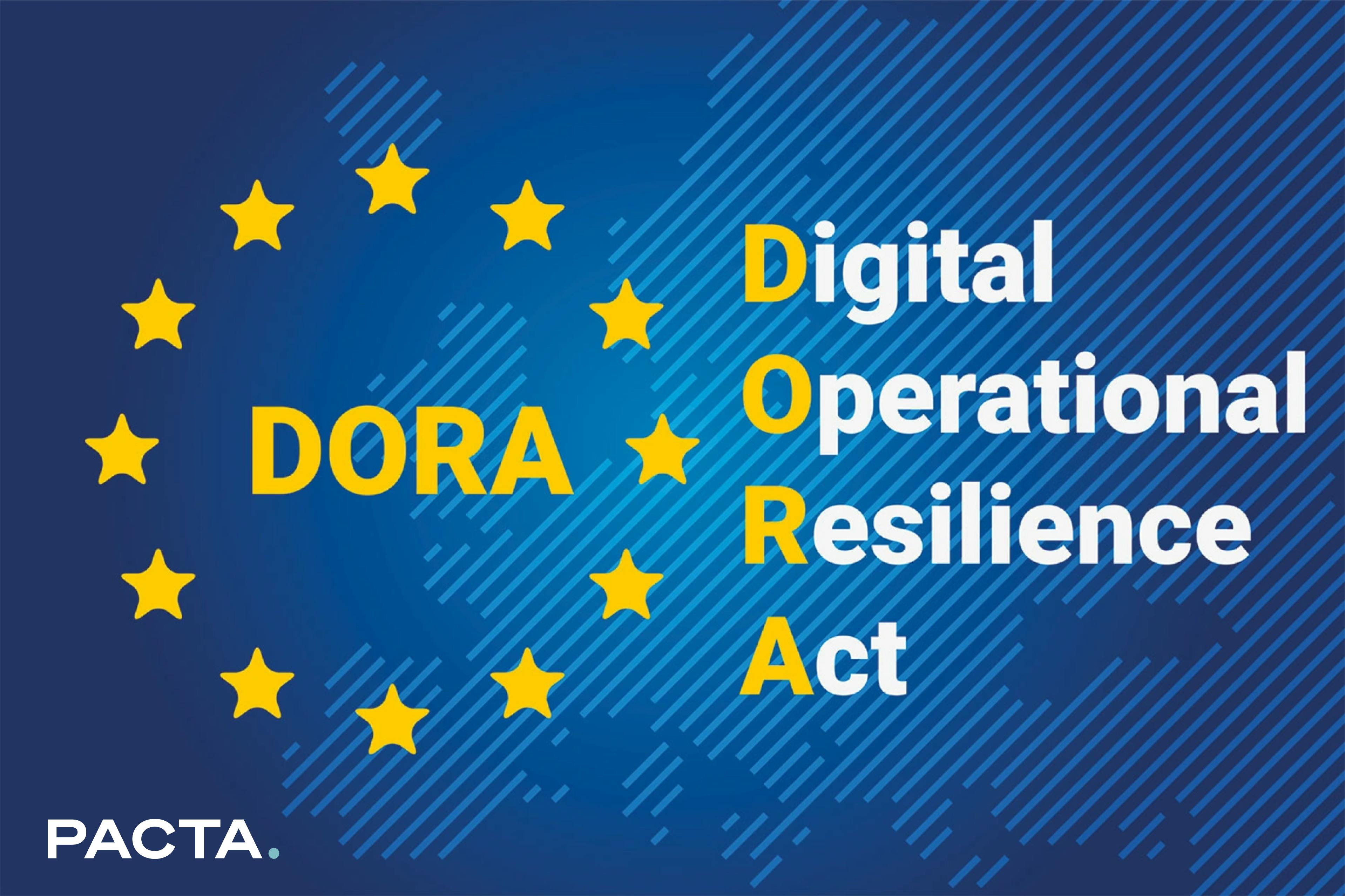In the ever-evolving landscape of the financial sector, the Digital Operational Resilience Act (DORA) represents a significant regulatory development aimed at improving the resilience of digital systems within the sector. A key strategy for meeting these new requirements is effective contract management. This article serves as an introduction to the importance of contract management for DORA compliance and provides a guide for financial organizations to strategically prepare for it.
The role of contract management
Assessment of risks from third parties
Strategic contract management plays a central role in DORA compliance. It enables organizations to accurately assess and manage the risks arising from their digital operations and reliance on third-party providers. By implementing an effective contract management system, financial service providers can ensure that all contracts with IT service providers, cloud providers and other partners are thoroughly reviewed.
Ensuring contractual obligations
Contract management systems enable financial organizations to assess, manage and mitigate the risks associated with third-party providers. This ensures that all contracts comply with DORA requirements, strengthening their digital resilience.
Automation of compliance processes
Implementing these requirements takes comprehensive strategic planning and commitment at all levels of the financial institution. By integrating an effective contract management system, financial institutions can not only ensure compliance with DORA regulations, but also improve their overall digital resilience and security.
Implementation of effective contract management systems
Contract management systems help to manage and mitigate risks associated with third-party providers and ensure that all contractual obligations are fulfilled efficiently.
Key features of the contract management software for DORA compliance
Centralized contract filing
A centralized contract repository is essential for preparing your vendor contracts for compliance. It allows financial institutions to store, manage and retrieve all contracts in one place to ensure that all contractual obligations are easily accessible and verifiable.
Automated risk assessment
Automated risk assessment tools help to evaluate the risks associated with third-party providers. These tools can be used to assess whether the regulatory conditions for awarding contracts are met, ensuring that all potential risks are identified and mitigated before agreements are concluded.
Real-time monitoring and reporting
With real-time monitoring and reporting, financial institutions have a constant overview of their contractual obligations and compliance status. These features are essential for obtaining up-to-date information on supplier performance and compliance with DORA requirements. By automating key processes and providing real-time data, software contributes significantly to strengthening digital resilience.
Strategic planning for compliance with DORA regulations
Thorough strategic planning is essential in order to successfully implement the DORA guidelines. This requires commitment at all levels of a financial institution. The implementation of an effective contract management system plays a central role here, as it not only helps to meet DORA requirements, but also improves digital resilience and security.
Identification of critical suppliers
An essential part of strategic planning is the identification of critical suppliers. Financial institutions must carefully evaluate their relationships with third-party vendors to determine which suppliers are essential to their business and the risks associated with these partnerships.
Developing a roadmap for compliance
In order to fully comply with the DORA requirements by 2025, a detailed roadmap needs to be developed. This should include the necessary steps and deadlines for compliance, including the integration of contract management systems and the continuous monitoring of relationships with third-party providers.
Continuous improvement and monitoring
It is also crucial to continuously improve and monitor to ensure compliance with DORA regulations. Financial institutions should regularly review and adapt their contract management processes to respond appropriately to new risks or regulatory changes. Regular audits and reviews are necessary to ensure that all contractual obligations are met and that DORA regulations are continuously complied with.
Improving digital resilience through contract management
Strengthening relationships with suppliers
Efficient contract management is essential for strengthening relationships with suppliers. Clear and detailed contracts ensure that all parties understand their obligations and expectations. This transparency promotes trust and supports the development of long-term partnerships.
Mitigation of operational risks
Contract management systems also play an important role in mitigating operational risks. They enable companies to identify potential risks at an early stage and take proactive measures to manage them. This also includes regular reviews and updates of contracts to take account of changing legal requirements and business needs.
Ensuring data security
Ensuring data security is a crucial aspect of digital resilience. Contract management software can help manage data protection clauses and ensure compliance with data security standards. This not only protects sensitive information, but also helps to avoid legal and financial repercussions.
Regulatory requirements and best practices
In order to achieve DORA compliance, financial institutions must ensure that their contracts with third party providers contain specific clauses relating to ICT risk management and incident reporting. This includes:
- Detailed provisions on data protection and cyber security.
- Ensuring that providers comply with the same regulatory standards as the financial institution.
- Regularly reviewing and updating contracts to reflect any legal changes.
Conducting regular audits and reviews is critical to maintaining DORA compliance. These audits should focus on assessing the effectiveness of ICT risk management practices and ensuring that all contractual obligations are being met. Key steps include:
- Schedule regular audits to assess compliance with DORA requirements.
- Review incident reports and risk assessments to identify areas for improvement.
- Implement corrective actions based on audit findings to improve overall resilience.
Continuous monitoring and improvement are essential to maintain compliance and mitigate risks in the dynamic regulatory landscape.
Key Learnings
- Effective contract management is critical for financial organizations to comply with DORA requirements.
- Implementing a robust contract management system helps to accurately assess and mitigate third party risks.
- Choosing the right contract management software is critical to automating compliance processes and ensuring data security.
- Strategic planning and continuous improvement are critical to DORA compliance and improving digital resilience.
- Regular audits and reviews are necessary to bring contracts in line with regulatory standards and ensure ongoing compliance.
Conclusion
In summary, DORA compliance through strategic contract management is not only a regulatory necessity, but also a significant opportunity for financial institutions to improve their operational efficiency and digital resilience. By proactively adapting and continuously improving their contract management systems, financial organizations can ensure they are well equipped to meet the challenges of the digital future. Effective contract management enables accurate assessment, management and mitigation of risks associated with third-party providers, ensuring that all contracts comply with DORA requirements. This strategic approach not only meets regulatory requirements, but also strengthens the overall security and resilience of financial operations.
Frequently asked questions
What does DORA compliance mean and why is it important for financial companies?
DORA, or the Digital Operational Resilience Act, is a regulatory framework aimed at improving the digital resilience of financial institutions. Compliance is critical to mitigating risks associated with digital operations and third-party dependencies.
How does contract management contribute to DORA compliance?
Effective contract management helps financial organizations assess, manage and mitigate the risks associated with third-party providers. This ensures that all contracts comply with DORA requirements and strengthens digital resilience.
What are the key features of contract management software for DORA compliance?
Key features include a centralized contract repository, automated risk assessment and real-time monitoring and reporting. These features facilitate compliance and improve operational efficiency.
How can financial companies choose the right contract management software?
Financial organizations should consider software that integrates well with existing systems, provides robust training and support, and has features designed specifically for regulatory compliance, such as automated risk assessments and real-time reporting.
What are the steps involved in introducing an effective contract management system?
This includes selecting the right software, integrating it into existing systems and providing comprehensive training and support to ensure that everyone involved can use the system effectively.
How can strategic contract management improve digital resilience?
Strategic contract management strengthens vendor relationships, mitigates operational risks and ensures data security, improving the overall digital resilience of financial institutions.



